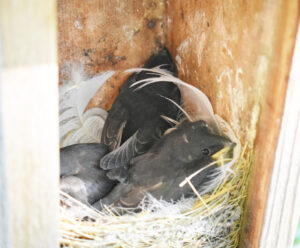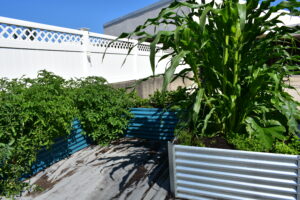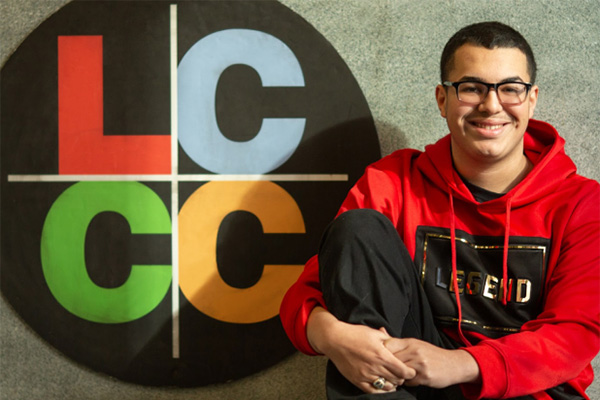Field Biology Course Enables Hands-On Learning and Research

On a 90-degree day, students in the Field Biology course arrive at the Fish Hatchery in Allentown early in the morning, hauling equipment through dewy fields. They do this week after week throughout the summer. What are they looking for? The answer may be simple, but its environmental impact is complex. They’re peering into bird boxes, dotted throughout the park, to quantify signs of life and biodiversity.
 Students interested in learning more about the environment have a unique opportunity to do so at LCCC. In the Field Biology course, taught by John Loughman, students have a chance to learn about nature and its many inhabitants through digging in the dirt, trekking through woods and getting up close and personal with wildlife. Students often work outside to put what they learn in the classroom into practice. “After a class, I asked a student if she liked the activity, which was a hike,” Loughman says. “She responded, ‘I don’t know. I never go outside.’ Having a course that is held outside is a new experience for many students.”
Students interested in learning more about the environment have a unique opportunity to do so at LCCC. In the Field Biology course, taught by John Loughman, students have a chance to learn about nature and its many inhabitants through digging in the dirt, trekking through woods and getting up close and personal with wildlife. Students often work outside to put what they learn in the classroom into practice. “After a class, I asked a student if she liked the activity, which was a hike,” Loughman says. “She responded, ‘I don’t know. I never go outside.’ Having a course that is held outside is a new experience for many students.”
One of the projects of the course is for students to monitor bird boxes at the Fish Hatchery and Trexler Memorial Park, both in Allentown. Students check stations, looking for bird nests, signs of activity, baby birds and debris. They upload results to the Cornell Lab of Ornithology’s database, which lists avian data across the U.S. “The information gathered can assist planners and managers in best practices for their locations,” Loughman says.
 Yandel Ortiz, TV/film major, says, “This class is one of the most fun things I’ve gotten to do. Being outside, going to parks, and especially walking a couple miles, checking on bird boxes…it’s so much fun.” Dominique Lawrence-Garrison, dual enrollment student and future biology major, says, “This class…is a bigger thing than just us. It feels great to come out and help conduct this research and have an impact.”
Yandel Ortiz, TV/film major, says, “This class is one of the most fun things I’ve gotten to do. Being outside, going to parks, and especially walking a couple miles, checking on bird boxes…it’s so much fun.” Dominique Lawrence-Garrison, dual enrollment student and future biology major, says, “This class…is a bigger thing than just us. It feels great to come out and help conduct this research and have an impact.”
The class’s focus on environmental conservation activities is in large part thanks to a mini-grant program through Lehigh Valley Greenways titled, “Partnership for Change: Community Building for a Greener Lehigh Valley.” The $6,900 grant supports activities to increase awareness of the benefits of the natural world and the importance of conservation.
The Field Biology and Science Lab Tech students built 13 raised garden beds over the course of the summer, representing the kind of conservation project in line with the LV Greenways grant. “Students were involved in the planning of the garden design, scaling up the plan to the site, installing garden fabric onto the site, installing the beds, distributing about 18 tons of soil into the beds and planting about 200 herbs,” says Loughman. The garden currently grows corn, beans, squash, celery and a myriad of vegetables that the students continue to tend.
and a myriad of vegetables that the students continue to tend.
While the students love the course for the experiential learning and research participation, Loughman believes the class can benefit even those who are not interested in biology or environmental science. According to him, offering hands-on, field work experience is important in fostering any student’s learning. “It allows students to find their place, or not, in science—and whatever their major, appreciate their place in the world,” he says.
For more information about the Biology program at LCCC, visit the webpage.

